Wednesday, June 28th, 2023
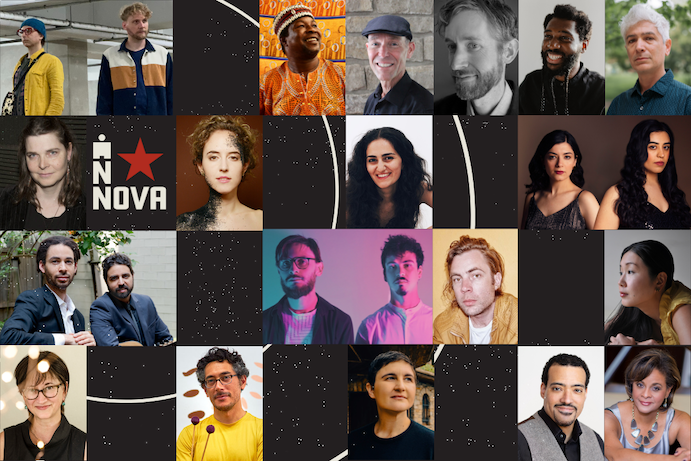
Today innova Recordings, the in-house recordings label of American Composers Forum, announced the second collection of recording projects selected through its panel process. innova’s new business model is aimed at making the process of envisioning, producing, and releasing recordings more inclusive and accessible to artists. Multi-year lead support from the Elizabeth & Michel Sorel Charitable Organization provides additional funding to women artists, and to facilitate work with recording venues and producers from underrepresented genders.
Applicants were invited to submit recording projects at any stage, and were offered the opportunity to seek guidance on the application process and their project. Peer panelists selected the 15 projects from a pool of 169 applications, reviewing the impact of this opportunity for them, the strength of the project plan and music (and ability for innova to successfully support it), and the diversity of the full cohort. Based on their self-identified gender and race (if offered), the cohort is made up of 37 percent individuals identifying as female, 50 percent identifying as male, and 13 percent identifying as non-binary or gender non-conforming. Sixty-six percent identify as Black, Indigenous, Person of Color (BIPOC). The panel of curators was Julian Otis, Laura Steenberge, Kennedy Taylor Dixon, and Ken Ueno.
Artists and Project Descriptions:
Mary Ellen Childs (she/her)
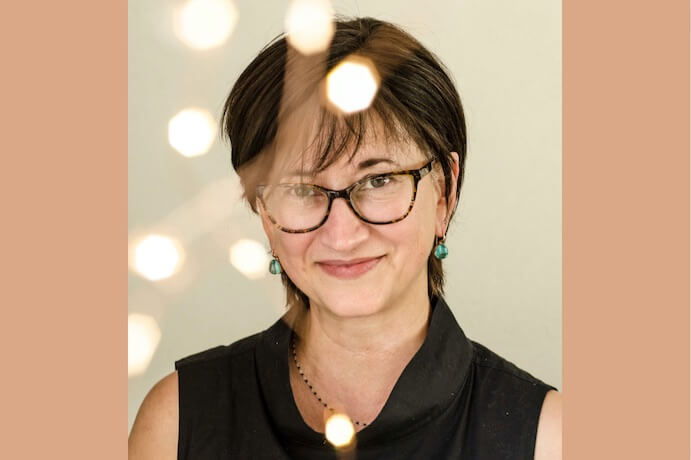
This project is supported by the Sorel Organization.
Mary Ellen Childs is a composer who creates distinctive sonic worlds influenced by place, sensory experience, and passages of time. She often writes for specific environments or architecture, and has been creating a body of work combining the ear and the nose, and recently premiered sound/scent installations Aromusic at Proyecto ‘ace in Buenos Aires and Smell Hear in Fez, Morocco. She has received grants and commissions from Opera America, Kronos Quartet, The Kitchen, Walker Art Center, Other Minds, MAP Fund, and has had Bush Fellowships, McKnight Fellowships, and a United States Artist Fellowship.
Project description:
NORTH, by composer Mary Ellen Childs. Written for and recorded by St. Paul-based ensemble Zeitgeist (clarinet/bass clarinet, piano, 2 percussion). NORTH is inspired by Childs’ experiences in the Arctic, living aboard a Tall Ship and sailing the fjords of Svalbard, just 10 degrees from the North Pole. She came away with profound artistic impressions of the spare, often subtle, occasionally violent sounds of the Arctic, and the overwhelming breadth of the landscape and seascapes. Svalbard is a remote land where nature demands the upper hand. Yet, even in this largely unpopulated land, human impact is evident. Plastic and trash from faraway populations is abundant on the shoreline, and receding glaciers and ice floes reflect human-caused climate change. This experience underscores the way in which the air we breathe, the water we use, and the earth we tread is shared by all on the planet.
NORTH was originally created as part of Childs’ immersive installation that included four channels of video projected onto textured surfaces, 4.1 surround sound, and a subtle scent, which Childs designed. NORTH premiered at the Anderson Center at Tower View in Red Wing, MN, January-April 2023.
Sidiki Conde (he/him)
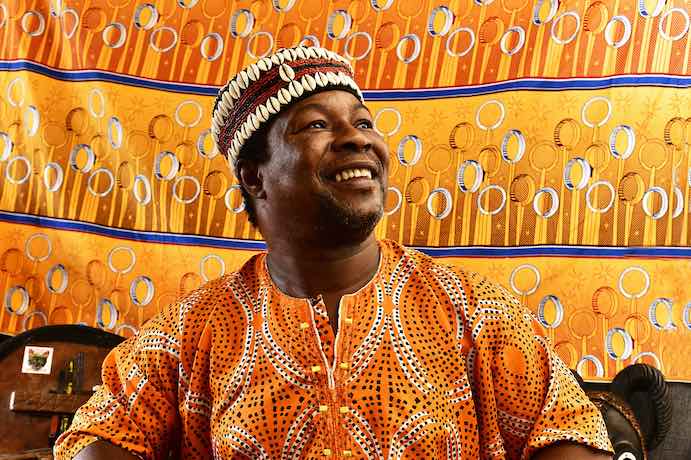
Sidiki Conde is a traditional musician and composer from Guinea, West Africa. Conde emigrated to America in 1998. He was named a National Heritage Fellow in 2007 by the NEA.
Project description:
I was invited as an artist in residence, together with my longtime Guinean guitarist, Wowo Souakoli, by the New Orleans Jazz National Historical Park to collaborate with New Orleans’ musicians of the diverse genres of the city: jazz, blues, and zydeco. All of these genres have their origins in West Africa. The recording project is a collection of my songs, a number of which I composed while in New Orleans. The music was recorded together with New Orleans musicians. The collaborating musicians on the recording include Bruce Sunpie Barnes, a master of zydeco and Afro-Louisiana traditional music, and New Orleans’ jazz artists Dr. Michael White and Mitchell Player, as well as Matt Hampsey of the National Park.
Daniel Corral (he/him)
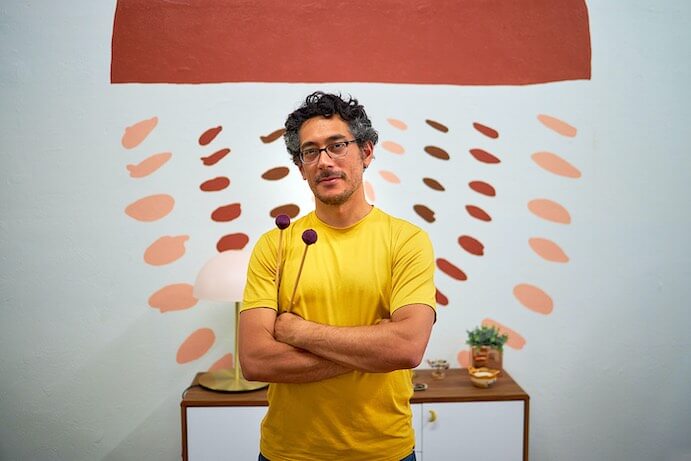
Daniel Corral is a mixed-heritage Filipino-American composer/performer born and raised in Eagle River, Alaska. Based in Los Angeles since 2005, his creative practice draws inspiration from Marshall McLuhan’s definition of art as “exact information of how to rearrange one’s psyche in order to anticipate the next blow from our own extended faculties.” This manifests via combinations of pop culture and experimental music conceptual rigor, unique instrumentation, performances in outdoor and/or public spaces, microtonality, consideration of the relational values of performances, and pieces that address current issues.
Project description:
9 for 60 is a concert-length composition in which rhythmic values are determined by two factors: the physical nature of the frequencies being played and the embodied presence of the musicians in response to the instruments. 9 for 60 is written for two groups of custom-built instruments: a set of 40 wooden organ pipes that are played by five musicians, and a set of 20 microtonal chimes I made to be played by four percussionists. 9 for 60 explores questions of relational values and the embodiment of sound, which the pandemic has focused my work on.
These questions include: Can dismantling and repurposing a church organ — referred to by Machaut as the “king of instruments” — relate to the democratization of political power? Can a musical practice based on microtonality relate to questioning the invisible nature of dominant cultural paradigms? Can the physicality of musical intervals be translated into rhythmic relationships? How can something as prescriptive as a musical composition allow for individual performers’ own physicality to influence the performance while retaining the composition’s identity as a structured work?
Duo Noire (Thomas Flippin, Christopher Mallett) (he/him/they)
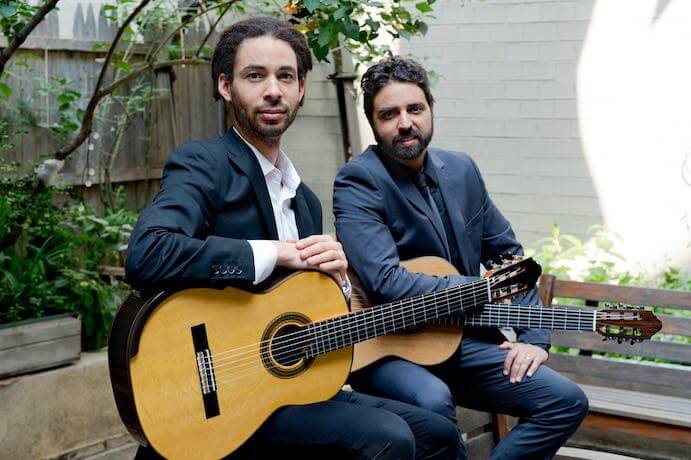
Duo Noire is a “virtuosic pair” (I Care if You Listen) of the pioneering American classical guitarists Thomas Flippin and Christopher Mallett. Focusing on audience-friendly contemporary music, their concerts and recordings offer “profoundly enjoyable” genre-bending repertoire with “spectacular precision” (St. Louis Post- Dispatch).
Project description:
This new recording will be the follow-up to classical guitar ensemble Duo Noire’s debut album Night Triptych and will exclusively feature premiere recordings of newly commissioned works by composers working in a variety of styles who utilize the classical guitar duo in truly innovative ways.
Humay Gasimzadeh (she/her)
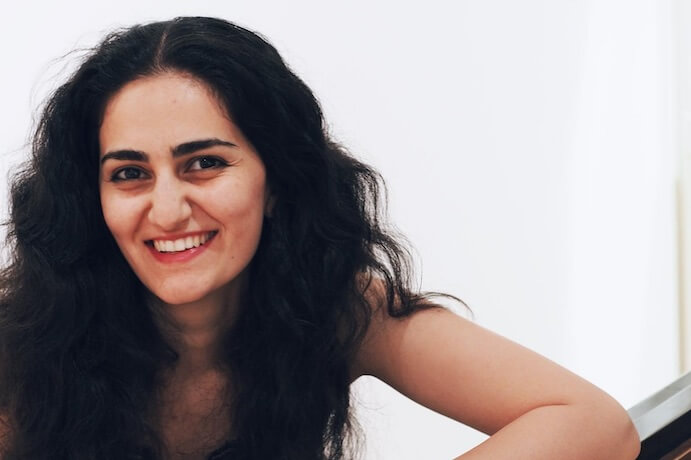
This project is supported by the Sorel Organization.
Originally from Azerbaijan, Humay Gasimzade is focused on promoting the most recent piano music composed by her contemporaries. She received her Doctorate degree in the Contemporary Performance Program (piano) in the studio of Professor Robert Satterlee at Bowling Green State University, in the 2018-2022 academic years. She is a winner of the 2020 Cortona Contemporary Performance Competition. Humay is a research fellow at Institute for Composer Diversity.
Project description:
Piano Pieces by Azerbaijani Composers features five composers (Ayaz Gambarli, Tahir Ibishov, Said Gani, Turkar Gasimzada, and Elmir Mirzoev). While embracing various contemporary music trends of the Western canon in their works, these composers’ compositional thinking is influenced by Azerbaijani national music traditions. But they do not fall under the categories and labels such as “exotic” or “orientalist,” which are occasionally applied to the works of non-Western composers, and especially those from the Middle East. In other words, the music of these composers does not employ an aesthetic that implies modal music with exaggerated ornaments, neither in these works do they artificially imitate or directly quote the vernacular and traditional music of Azerbaijan. Some of the works featured in this album are directly commissioned by and composed for me as a result of long-lasting collaborations between these composers and me.
Gina Izzo (she/her)
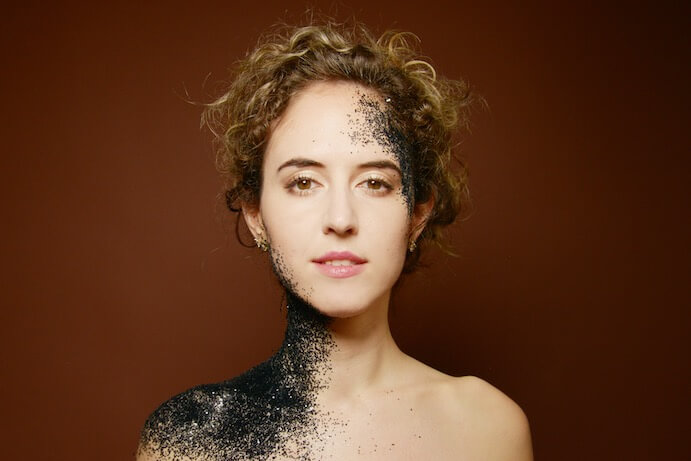
This project is supported by the Sorel Organization.
NY-based flutist Gina Izzo “Rattles speakers and expectations with stop-time razzle, vocal (flute-talk) and electronic (phaser) effects” (NYC Jazz Record).” Far from conventional, Izzo integrates improvisation and analog FX, with the flute at the center.
Recently, she has performed at venues including Carnegie Hall, Lincoln Center, David Geffen Hall, Merkin Concert Hall, The Stone, Joe’s Pub at The Public Theater, the Jazz Standard, National Sawdust, and the Bang on a Can Festival, among others. Her debut solo project, ladyybirdd which features original electro-acoustic music, has been described as “an absolute masterpiece in experimentation”(XuneMag) with “an unbridled sense of adventure, razor-sharp technique, and dynamic intensity” (Honk Magazine).
In 2018, Izzo co-founded bespoken, with Eunbi Kim, a mentorship organization for women in music, serving over 80 artists from around the world through their fellowship program. In 2010 she co-founded RighteousGIRLS, with pianist Erika Dohi, who have received a 2023 Chamber Music America project grant, a 2016 New Music USA Impact Award, and whose debut album “gathering blue” received 4.5 stars in Downbeat Magazine.
Izzo is currently adjunct faculty at The New School, on the Board of Directors of the Willie Mae Rock Camp, and an ambassador for the Interlochen Center for the Arts.
Project description:
Far from conventional, ladyybirdd’s debut album,”Tomorrow’s Yesterday,” is a personal exploration set to a landscape of electro-acoustic composition integrating improvisation, analog FX, with the flute at the center. While a flute may seem an unlikely candidate for musical insurrection, ladyybirdd brings dynamic intensity and unrestricted adventure. The album features original music by Gina Izzo, and contributions from Ambrose Akinmusire, Erika Dohi, Ian Rosenbaum, Immanuel Wilkins, Nick Dunston, and is produced by Joseph Branciforte.
Samn Johnson (he/they) and Tis Kaoru Zamler-Cahart (they/them)
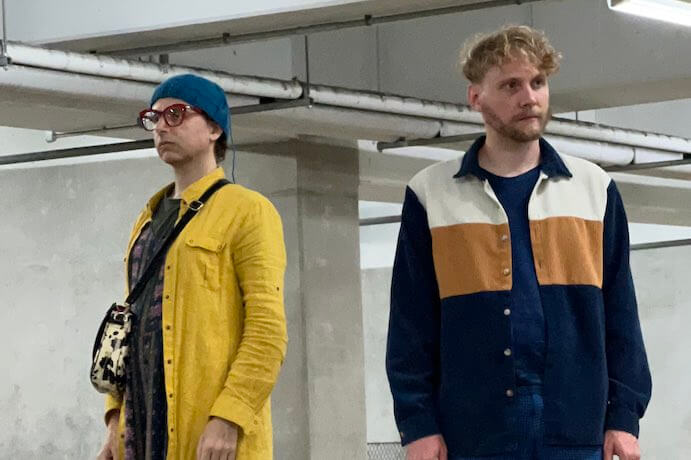
Samn Johnson (he/they) is a composer, producer, and historical linguist, working in an eclectic style integrating ethereal electronics with contemporary classical composition and ancient languages. Samn tends to collaborate closely with performers and write extensive works for a specific singer’s voice, often harnessing scholarly research on acoustics and historical phonology to bring back to life the sounds of ancient languages like Latin, Old English, Hittite, or Gothic into a fantastical sound world. He studied composition at the University of Michigan at Ann Arbor and at NYU in New York City, as well as Indo-European historical linguistics at the University of Leiden in The Netherlands, and Latin and Greek by himself. Samn currently lives and works in Kalamazoo, Michigan.
Tis Kaoru Zamler-Carhart (they/them) is a singer, composer, designer, writer and medievalist. Tis is passionate about promoting trans voices in contemporary music and regularly works with composers who write specifically for their voice: Andrew Noseworthy, Kyle Tieman-Strauss, Kirsten Volness, and of course Samn Johnson. Tis’s books are published by Punctum Books and straddle the literary space between trans fiction, Afro-futurism, and speculative design. Tis currently teaches transdisciplinary design at the Parsons School of Design in New York City, and formerly taught medieval music and Latin at the Royal Conservatoire The Hague in The Netherlands.
Asuka Kakitani (she/her)
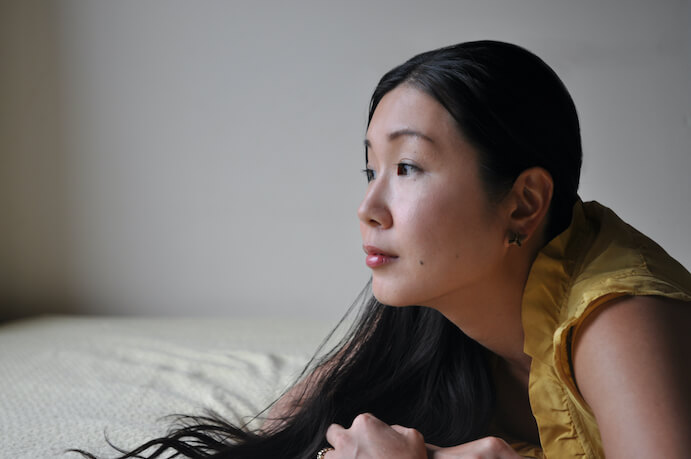
This project is supported by the Sorel Organization.
Japanese-born composer Asuka Kakitani‘s deep love for nature inspires her to transform her vision into musical stories. Her mostly-programmatic music results from the inspiration evoked by her surroundings interweaved with her perspectives and imagination. Kakitani’s projects span jazz big bands, orchestras, chamber ensembles, and soloists. Kakitani was described as “[a] musical impressionist and supreme colorist” (Hot House Magazine) and her music as “the overflowing world of inspirational melody” (DownBeat Magazine) and “absolutely superb” (All About Jazz). Kakitani has been the recipient of grants, fellowships, and awards, including the New Music USA Creator Fund, the Eighth Blackbird Creative Lab, the McKnight Composer Fellowship, the Jerome Fund for New Music Grant, Composer Assistance Grants, the BMI Charlie Parker Jazz Composition Prize, Brooklyn Arts Council Grant, and Minnesota State Arts Board Grants.
Project description:
What She Wrote is the album-long work Kakitani composed to the text of women authors who left behind their strong voices despite the professional obstacles they might have had by being women artists of their generation. Featuring a renowned female vocal quartet, Quince Ensemble, Kakitani set music to writings of authors she admires — Emily Dickinson, Virginia Woolf, Mary Shelley, Sappho, and Akiko Yosano — to understand them on a deeper level and create the story of those women from her own perspective.
Leilehua Lanzilotti (she/they)
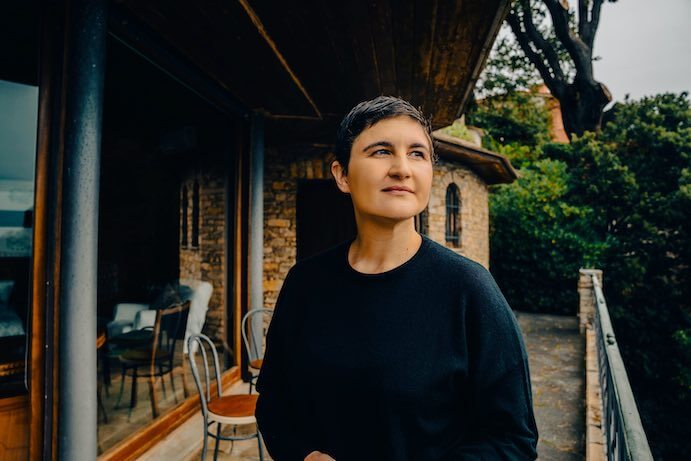
This project is supported by the Sorel Organization.
Leilehua Lanzilotti (b. 1983) is a Kanaka Maoli (Native Hawaiian) composer/sound artist dedicated to the arts of our time. A “leading composer-performer” (The New York Times), Lanzilotti’s work is characterized by expansive explorations of timbre. Lanzilotti was honored to be a finalist for the 2022 Pulitzer Prize in Music for with eyes the color of time (string orchestra), which the Pulitzer committee called, “a vibrant composition . . . that distinctly combines experimental string textures and episodes of melting lyricism.”
Project description:
The Isamu Noguchi Foundation and Garden Museum will be the first of several museums to host a major touring retrospective centered on the work and life of Toshiko Takaezu — the first nationally touring retrospective of Takaezu’s work in 20 years. To coincide with the exhibition, the museum will co-publish a new monograph with Yale University Press, and innova Recordings will be releasing this album of new works that Leilehua Lanzilotti has composed in response to Takaezu’s closed forms.
Thematic installations based on exhibitions Takaezu presented during her lifetime will include displays inspired by her Star Series, moons, Gaea and Devastation Forest installations, and garden seats. Also included will be a multimedia installation by Lanzilotti centered on the hidden element of sound in Takaezu’s works. Takaezu filled many of her closed forms with “rattles,” encouraging viewers to navigate their unseen interior volumes through sound.
The Linking Legacies Collective (he/him), (she/her)
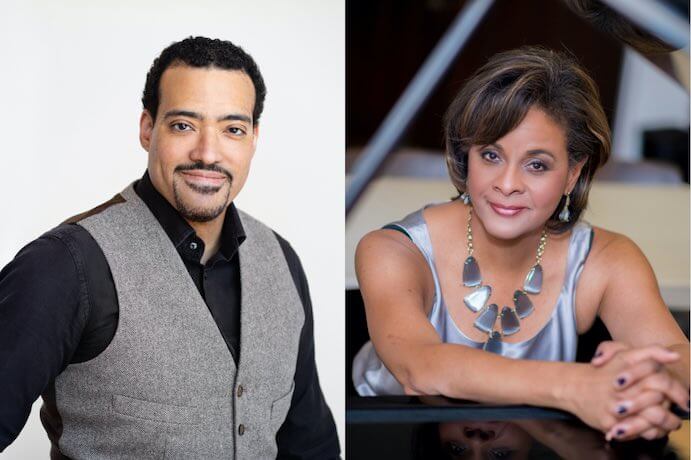
Christopher Jenkins is an Associate Dean and Conservatory Liaison to the Office of Equity, Diversity, and Inclusion at Oberlin Conservatory. He is currently earning a DMA in viola performance from the Cleveland Institute of Music and a Ph.D. in historical musicology from Case Western Reserve University.
Pianist Dianna White-Gould is on faculty at the Dike School of the Arts and the Music Settlement in Cleveland. She holds a degree in piano performance from Oberlin College Conservatory of Music, and a Master of Music in Piano from Cleveland State University.
Project description:
The “Linking Legacies” project is a collective of African-American classical musicians based in Northeast Ohio, performing works by composers with ties to this region. Because of its legacy as part of the Underground Railroad and its role in African-American education and musical training, this area is connected to a diverse range of composers, such as Nathaniel Dett, Julia Perry, George Walker, Hale Smith, Jeffrey Mumford, Dolores White, H. Leslie Adams, and Nkeiru Okoye. Through education and performance, Linking Legacies raises awareness of the music and biographical stories of these composers. This project was co-founded by Christopher Jenkins, viola, and Dianna White-Gould, piano.
Neera (she/her)
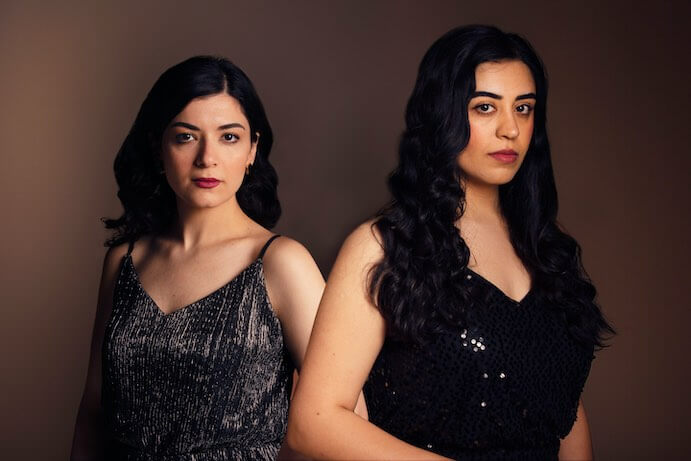
This project is supported by the Sorel Organization.
Sarvin Hazin is a violinist, kamanche player, educator, composer, and improviser based in Vienna, Austria. Her musical expertise spans classical, traditional, jazz, and improvisational genres. A graduate of the University for Music and Performing Arts in Vienna in both violin performance and chamber music, she has performed as a soloist with prestigious orchestras such as the Vienna Symphony Orchestra. Sarvin enjoys a versatile chamber music career as the violinist in Omen Quartet, and a member of the Ethno-Jazz ensemble Kurdophone, where she contributes to creating a captivating and innovative sound.
Dr. Kimia Hesabi is a D.C.-based violist, educator, composer, and the Co-Director of Learning and Engagement at the National Philharmonic. A versatile and multi-faceted artist and creator, Hesabi’s work and self-initiated projects are centered around artistic, educational, and social impact. Passionate about the music and culture of her home country, Iran, Kimia has recorded and published her debut album entitled Nemāno Gaona, featuring commissioned works for viola by composers of the Iranian Diaspora.
Project description:
“Neera” represents Kimia Hesabi and Sarvin Hazin’s collaboration in creating a musical project that draws inspiration from Iranian and Western classical, contemporary, and folk music traditions. The creative process of this work combines both pre-composed material and improvisations. In ancient Farsi, Neera means “to shine light,” and Hesabi and Hazin take this meaning to heart as within their collaboration they pay homage to historical Iranian women, such as Forough Farokhzad and Qamar-ol-Moluk Vaziri, who defied societal norms, paving the way for future generations. Neera represents Iranian women, shows their strength and importance, promotes cross-cultural exchange and understanding, and resists long-standing hierarchies within musical culture by delving into the identities, characters, impact, and journeys of real and fictional women who have inspired it.
NOICE (he/him)
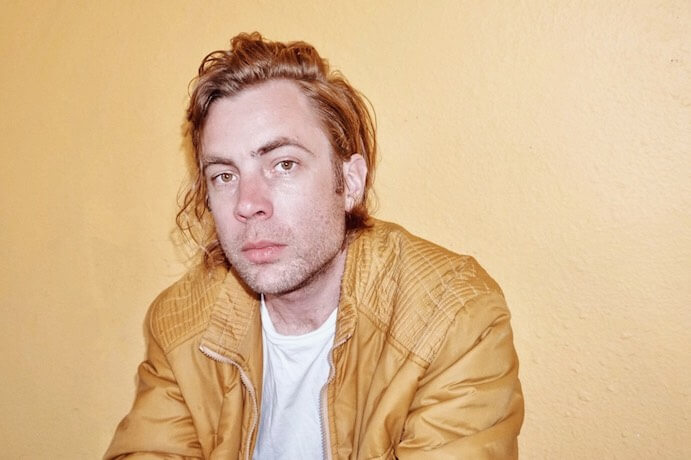
Alexander Noice is a Los Angeles-based composer/guitarist working with a wide range of genres, timbres, and instrumentation. His albums and compositions attempt to merge rock/pop, jazz, chamber, and electronic music into a cohesive authentic sound, oftentimes using lyrics and narratives imbued with modern relevancy as the impetus for his work. He has performed his compositions and collaborated with other artists throughout the world on stages from many corners of the musical landscape including Walt Disney Concert Hall, Redcat, Blue Note Tokyo, Blue Note Nagoya, the Troubadour, Bemis Center for Contemporary Arts, Roulette, the Hammer Museum, along with many festivals including MATA Festival, Sonar Tokyo, the Monterey Jazz Festival, Angel City Jazz Festival, Desert Daze Festival, and Green Umbrella at the LA Phil.
Project description:
I plan on composing 8-10 compositions for my six-piece ensemble NOICE, which features Argenta Walther and Karina Kallas on vocals, Gavin Templeton on alto saxophone, Miller Wren on electric bass, Andrew Lessman on drum-triggered electronics/samples, and myself on guitar/compositions. These compositions will draw from both musical and cinematic influences to convey the aesthetics and relevant narratives of the music and lyrics. Art rock, minimalism, jazz, and electronic music are significant influences in my music, but a description of this ensemble’s sound would fall short without also referencing my affinity for the extravagant visual and narrative aesthetics of filmmakers that include Federico Fellini, Maya Deren, Stanley Kubrick, and Alejandro Jodorowsky.
I would like to continue exploring the themes that were presented in the debut NOICE album from 2019, but go much more in-depth into certain subject matters. With this new album, I would like to further explore the themes of technology in our modern era and the pervasive nature that they have on our everyday lives, in particular the effects it has on mental health.
Jess Rowland (she/her)
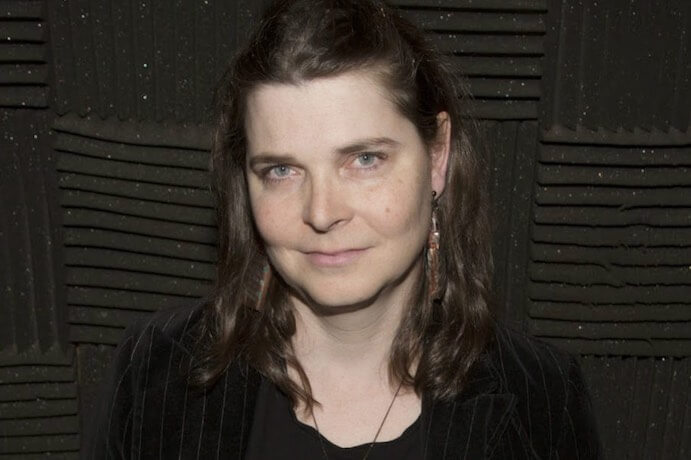
This project is supported by the Sorel Organization.
Jess Rowland is a New York City-based artist, musician, and composer. Much of her work explores the relationship between technologies, popular culture and other absurdities, investigating the weirdness of reality and how we all deal with it. In addition to her music and art practice, she works as an educator and advocate for new music.
Project description:
Plastiglomerates is a collection of music exploring the theme of the Plastiglomerate. “Plastiglomerate” is a recently-coined term used to describe a new geological phenomenon — plastics that have been cemented into organic rock through geological processes, and which come in a bizarre and dazzling array of textures, shapes and colors.
In the context of this collection of music, Plastiglomerate is a metaphor — a way of describing the kinds of processes used to create the music, as well as the content, texture, and density of the sounds in it, a roughly-fused conglomeration of organic and inorganic sound, analog and digital, human and machine.
The music is sculpturally “built,” rather than composed, from live improvised processing of existing material which, much like plastiglomerates, come from diverse sources, mostly corporate sound designed for consumption: smooth jazz, pop music, random bits on the radio, prepackaged samples from major audio software companies, etc. Some tracks consist entirely of computer-generated voices, by creating an AI voice from the music, effectively making this collection of music speak in its own voice, reciting processed sound poems. The main goal is to process and reprocess and reprocess again until it all coalesces.
The Vex Collection (he/him)
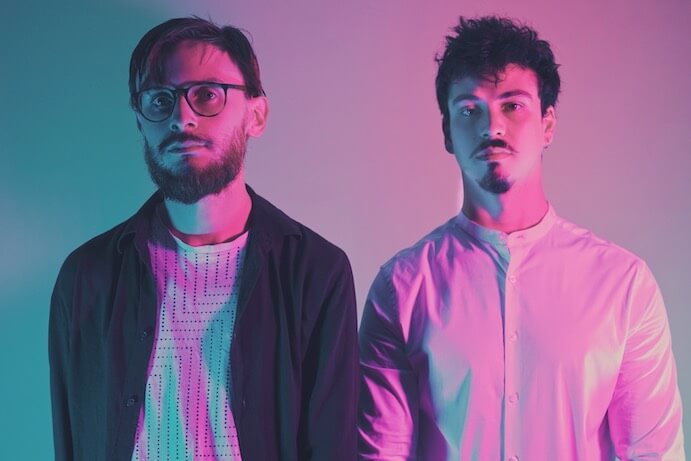
Mat Muntz is a composer, bassist, and multi-instrumentalist. Rooted in jazz improvisation and extending through microtonality, non-Western instrumentation, and experimental performance practice, Mat’s work seeks to imbue the volatile and bizarre with an expressive, human immediacy. His music has been described in The Wire as “rare and rewarding” and “with a strangeness that is positively thrilling,” and by The Guardian as “filled with a wild, distorted energy.”
After graduating from Manhattan School of Music in 2016, Mat has performed across North America, Europe, and China at venues including Carnegie Hall, the Kennedy Center, Roulette, Blue Note Beijing, and the Umbria Jazz Festival. His compositions have been premiered at The Shed, Moers Festival, Imani Winds Chamber Music Festival, and the 21st Century Guitar Conference. In addition, Mat has been the recipient of awards from Brooklyn Arts Council, the New York Foundation for The Arts, and the New York State Council on the Arts, and was invited to participate in the 2022 International Gugak Workshop in Seoul.
Since 2018, Mat has pioneered an experimental practice on the distinctive, hyper-regional Croatian bagpipe known as primorski meh. An ongoing exploration of the instrument’s unique intonational, timbral, and technical possibilities is documented in a growing body of solo, ensemble, and electroacoustic music, documented on the recordings meh. (2020), ghostly.ridiculous (2021), The Vex Collection (Carrier Records 2022), and Phantom Islands (Orenda Records 2023).
Vicente Atria is a Chilean composer and drummer. Described as “virtuosic,” “revelatory” (The New York Times) and “ecstatic,” (The Guardian), his music riffs on a wide range of idioms, from microtonal renaissance dances to Korean sanjo, creating ludic, futuristic sonic worlds.
A 2022-23 Wet Ink Ensemble Artist-in-Residence, Vicente has been commissioned and performed by the Sun Ra Arkestra, JACK Quartet, Wet Ink Ensemble, Yarn/Wire, and International Contemporary Ensemble. He has been featured in venues and festivals including Moers Festival (Germany), MATA Festival (NY), The Shed (NY), Roulette Intermedium (NY), The Stone (NY), Festival Mixtur (Spain), and ATLÁNTICX Festival (NY). He is a recipient of the German Jazz Prize (2023), ASCAP Herb Alpert Young Jazz Composer Award (2022), an ACF | create award (2021), The Shed Open Call commission (2019), and two Chilean Ministry of Culture Fondo de la Música grants (2022 & 2020). He holds a DMA in Composition from Columbia University.
Project description:
Imagining alternate pasts, presents, and futures, The Vex Collection uses unheard-of combinations of traditional instruments, newly-devised musical contraptions, and a philosophy of mad-scientific experimentation in their exploration of uncharted sonic space. The project is led by Mat Muntz (bass, various bagpipes, homemade woodwinds) and Vicente Hansen Atria (drums, gongs, electronics) and also features Korean woodwind virtuoso gamin on piri, taepyeongso, and saenghwang.
1200 & Chance Designs (he/him)
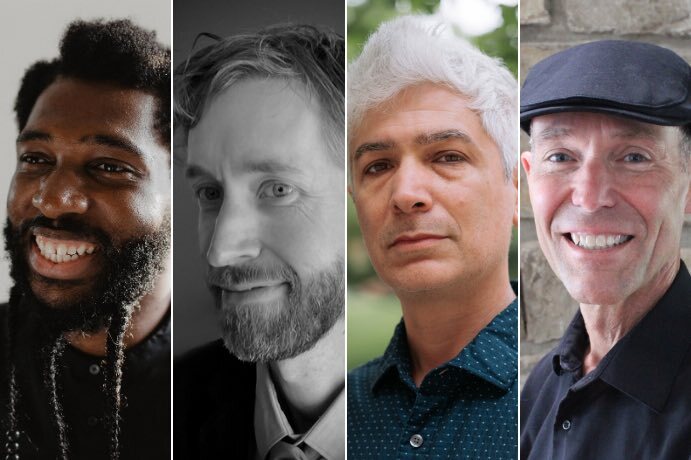
John Ritz (he/him) is Assistant Professor of Music Composition and Creative Studies at the University of Louisville. His recent work focuses on music for instruments and interactive computer systems. Jecorey “1200” Arthur (he/him) has performed as a soloist with the Stereo Hideout Brooklyn Orchestra, and the Pittsburgh, Baltimore, Dallas, Indianapolis, Nashville, Louisville, Columbus, and Oregon Symphony Orchestras. Greg Byrne (he/him) is Professor of Percussion Performance at the University of Louisville. Gabe Evens (he/him) is Associate Professor of Jazz Piano, Composition and Arranging at the University of Louisville.
Project description:
A collaboration between hip hop artist Jecorey “1200” Arthur and composer John Ritz’s experimental music group Chance Designs (Ritz/Greg Byrne/Gabe Evens). Through collaborations in the context of live performance, it became obvious that many of the concepts and interests being explored in these seemingly disparate genres, 1200’s hip hop music and Chance Designs’ experimental music have obvious intersections, including the creation of music mediated by technology, improvisation, political and societal narratives, systems theory, etc. What has emerged from these collaborations is an interesting and unique music with an unpredictable, yet inevitable musical style.
ABOUT THE SOREL ORGANIZATION
The Elizabeth & Michel Sorel Charitable Organization Inc., a 501©(3) private foundation, was established in 1996 by pianist Claudette Sorel and named for her parents. The Sorel Organization (www.SorelMusic.org) is committed to expanding opportunities for women in music, amplifying the voices of underrepresented composers, advancing gender and racial equity, and broadening the classical music canon for future generations.
ABOUT INNOVA RECORDINGS
Celebrating its 40th anniversary, the in-house record label of American Composers Forum, innova Recordings serves the needs of original, visionary, creative musicians by offering artistic and technical guidance throughout the recording and publication process; amplifying the reach of new musical ideas through access to our marketing and distribution networks; and actively working together to maximize professional impact. Together, we champion a curated body of diverse and compelling American musical voices to the listening public. Learn more at innova.mu.
ABOUT AMERICAN COMPOSERS FORUM
ACF supports and advocates for individuals and groups creating music today by demonstrating the vitality and relevance of their art. We connect artists with collaborators, organizations, audiences, and resources. Through storytelling, publications, recordings, hosted gatherings, and industry leadership, we activate equitable opportunities for artists. We provide direct funding and mentorship to a broad and diverse field of music creators, highlighting those who have been historically excluded from participation.
Founded in 1973 by composers Libby Larsen and Stephen Paulus as the Minnesota Composers Forum, the organization continues to invest in its Minnesota home while connecting artists and advocates across the United States, its territories, and beyond. ACF frames our work with a focus on racial equity and includes within that scope, but not limit it to, diverse gender identities, musical approaches and perspectives, religions, ages, (dis)abilities, cultures, backgrounds, sexual orientations, and broad definitions of being “American.” Visit www.composersforum.org for more information.